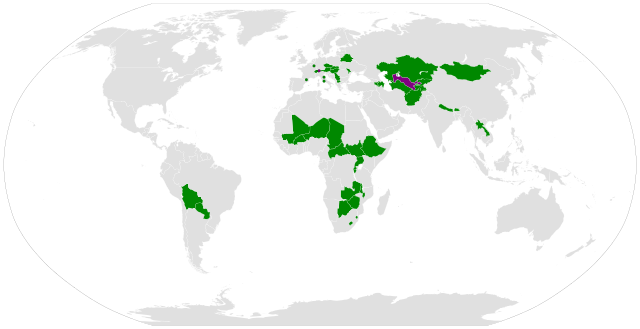The Henley Passport Index is a ranking of the world’s passports according to the number of destinations their holders can access without first obtaining a visa.
Henley & Partners released this press release today:
Japan has overtaken Singapore to claim the top spot on the 2018 Henley Passport Index, having gained visa-free access to Myanmar this month. Japan now enjoys visa-free/visa-on-arrival access to 190 destinations, compared to Singapore’s total of 189. The countries have been neck and neck since they both climbed to 1st place in February, pushing Germany down to 2nd place for the first time since 2014.
Germany has now fallen further to 3rd place, which it shares with South Korea and France. Their nationals enjoy visa-free access to 188 countries. France moved up a place last Friday when it gained visa-free access to Uzbekistan. Iraq and Afghanistan continues to sit at the bottom (106th) of the Henley Passport Index — based on exclusive data from the International Air Transport Association(IATA).
The US and the UK, both with 186 destinations, have slid down yet another spot — from 4th to 5th place — with neither having gained access to any new jurisdictions since the start of 2018. With stagnant outbound visa activity compared to Asian high-performers, it seems unlikely they will regain the number 1 spot they jointly held in 2015 any time soon.
In general, the UAE has made the most remarkable ascent on the Henley Passport Index, from 62nd place in 2006 to 21st place worldwide currently, and looking ahead, the most dramatic climb might come from Kosovo, which officially met all the criteria for visa-liberalization with the EU in July and is now in discussions with the European Council.
Russia received a boost in September when Taiwan announced a visa-waiver, but the country has nonetheless fallen from 46th to 47th place due to movements higher up the ranking. The same is true of China: Chinese nationals obtained access to two new jurisdictions (St. Lucia and Myanmar), but the Chinese passport fell two places, to 71st overall.
Dr. Christian H. Kälin, Group Chairman of Henley & Partners, says countries with citizenship-by-investment (CBI) programs all fall within the top 50 of the Henley Passport Index. Newcomer Moldova, which is due to launch its CBI program in November, has climbed 20 places since 2008. “The travel freedom that comes with a second passport is significant, while the economic and societal value that CBI programs generate for host countries can be transformative,” says Dr. Kälin.
The top countries are:
1. Japan (190 countries)
2. Singapore (189 countries)
3. Germany (188 countries)
4. (Tied) France, South Korea, Denmark, Finland, Italy, Sweden, Spain (187 countries)
5. (Tied) Norway, United Kingdom, Austria, Luxembourg, Netherlands, Portugal, USA (186 countries)
6. (Tied) Belgium, Switzerland, Canada, Ireland (185 countries)
7. (Tied) Australia, Greece, Malta (183 countries)
8. (Tied) New Zealand, Czech Republic (182 countries)
9. Iceland (181 countries)
10. (Tied) Hungary, Slovenia, Malaysia (180 countries)

